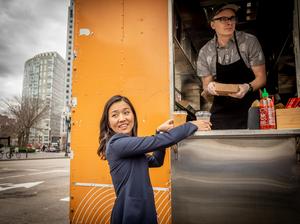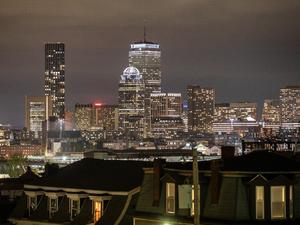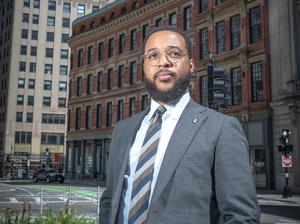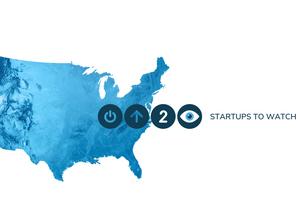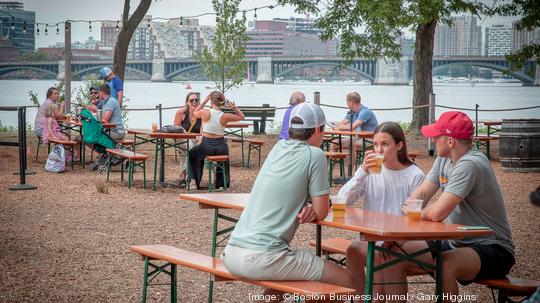
Boston can't keep up with the 24/7 nightlife of New York City. It doesn’t have year-round nice weather like San Diego. And the parties on Carson Beach are no match for the bacchanals on Miami's South Beach.
But the city still wants to people to have fun.
Michelle Wu’s administration has committed to boosting Boston’s social scene. Among the city’s goals, as laid out in an 86-page report about revitalizing downtown, is making Boston “a 24-hour city, on par with other global cities, with nightlife that is inviting and welcoming to everyone.”
Those plans include hiring a “late-night czar.” The person in this role will report to the Office of Economic Opportunity and Inclusion and will first focus on providing recommendations to make the city’s recreational economy more vibrant and inclusive. A spokesperson from the office said they received 74 applications for the position and are interviewing candidates.
The city admitted in its new report that Boston’s “sleepy” reputation hurts its ability to attract and retain young talent.
BostInno spoke with some of the city's young talent about their experiences on the Boston social scene. While some said they’re seeing signs of change, with more inclusive and interactive events popping up that cater to young people, others said the city just isn’t evolving fast enough to keep them here.
The city is changing, but the pace is slow
Connor Murdock has lived in Boston for just over a decade. He loves the city, but recently, he's been thinking about leaving.
The 29-year-old graduated from Boston University and worked in the creative industry before co-founding the startup Coworkly. After living in Boston since his college days, Murdock said he’s starting to think he’s seen most of what the city has to offer.
“For me in particular, it’s not necessarily that there’s not enough to do. It’s that I’ve done most of it. There are not enough new things to do,” Murdock said.
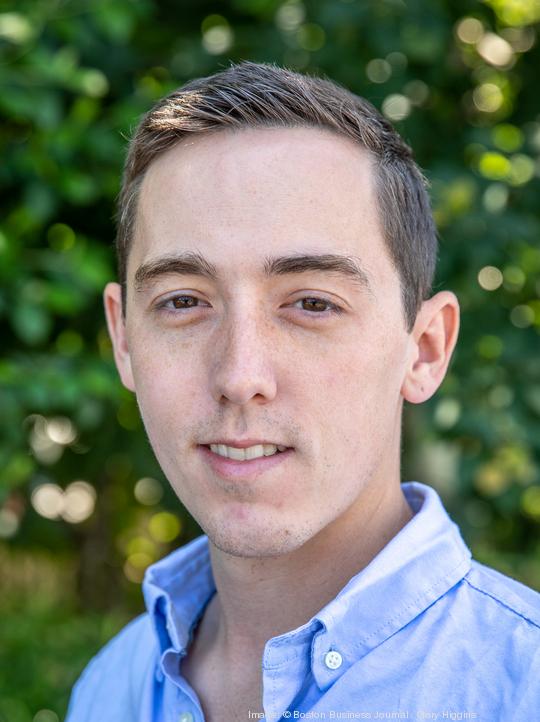
Murdock said he’s certainly witnessed changes in his years living in Boston, including the development in the Seaport and the redesign of the Prudential Center. He’s also a big fan of the outdoor dining that emerged during the Covid-19 pandemic.
Murdock said he’s encouraged by those changes. But one area he thinks still needs work is the availability of activities during the winter months. He wants to see more than outdoor dining igloos that charge a boatload for patrons to dine inside. Murdock said he’d like to see the city partner with neighborhoods and nonprofits like the Museum of Fine Arts to host events that bring people together during the dark, cold days.
If Murdock were to leave Boston, he wouldn’t be the first among his friends to fly the coop.
“I think that all in all, it’s become a more approachable and lively city. I don’t think it’s happened fast enough, personally, and people leave quicker than Boston changes. At least that’s been my experience starting here in college and seeing everyone leave,” he said.
Moving to greener pastures
Jack Binda has done more than think about leaving Boston. He’s already planned his departure.
The customer growth expert at Klaviyo has plans to work remotely for six weeks in San Diego starting in January. While he’s there, he’ll be scoping out areas to live. Binda said a large part of the reason he wants to leave is Boston’s lacking social scene.
“It’s a pretty small city. Bars close very early,” Binda said. “Bars are crowded as can be. There’s just not many options…I want to go out and do something else and not have to wait in lines and only go to the same four or five bars.”

Binda grew up in Milton, went to the University of New Hampshire and stayed in Boston because it was an easy move after graduation. In just a few years, the 26-year-old is already growing tired of the city’s options.
He’s also getting tired of walking or paying from an Uber to get anywhere from his home in Dorchester.
Binda called the Red Line, which serves Dorchester, “the worst train in the world.”
Yes, even worse than the Orange Line.
On one recent morning, he said he arrived at his T stop for his morning commute to the office only to see that the next train was 48 minutes away.
Like most Bostonians, Binda wants to see more reliable transportation open later at night. Binda also wants to see more places to hang around outside, have a few drinks and watch the day’s games — places like Cisco Brewers Seaport that don’t feel like a bar dungeon.
During the winter, he likes to check out places like Flight Club and Spin where bar patrons can play indoor games. The problem is, he said, there aren’t enough of these places yet.
“In February," he said, "good luck trying to get there on a Saturday and get a reservation if you didn’t book it a few months in advance."
Diverse events draw a crowd
Xiara Deleon lives in Lawrence. But in the last few months, the IT specialist at Klaviyo has been driving into the city more often.
Ever since the city’s reopening after the pandemic, she’s noticed more Boston venues celebrating the city’s different communities. She’s spent a few nights at the Venu and Icon nightclubs for their Latin nights. She even attended a Bad Bunny-themed brunch at Strega in the North End that she first saw on TikTok.
TikTok, she said, is like her generation's version of review site Yelp, and she said the city should embrace that.

In addition to seeing more businesses hop onto social media and try to stay hip with the latest trends, Deleon said she’d like to see the city have its own social pages to promote events. As an example, she said places like Tuscan Village, a mixed-use development in southern New Hampshire with food, shops, apartments, offices and hotels, were doing it right on social media.
“They’re like, we’re doing this tonight, sign up here…they tell us what the lines will be like, where to go, where their overflow parking is,” Deleon said. “And it’s not a place, it’s a community. So, I feel like on a larger scale, it could work for a city.”

